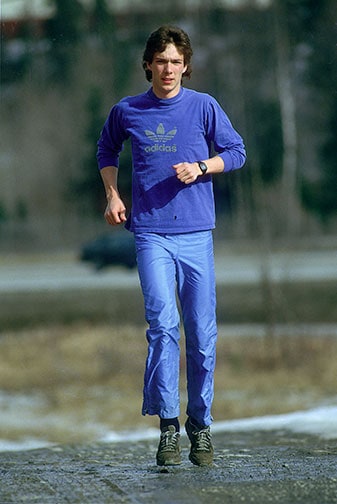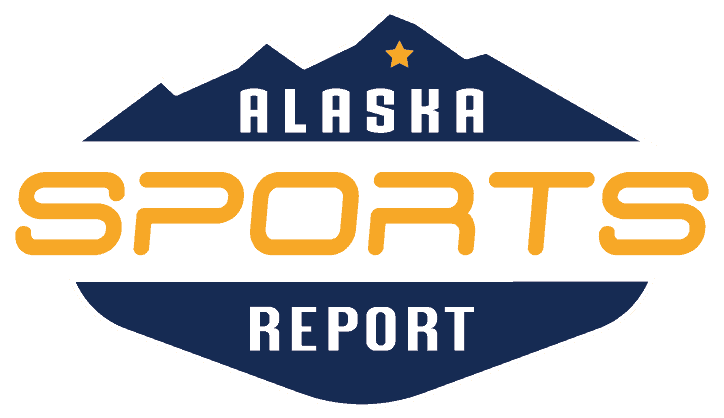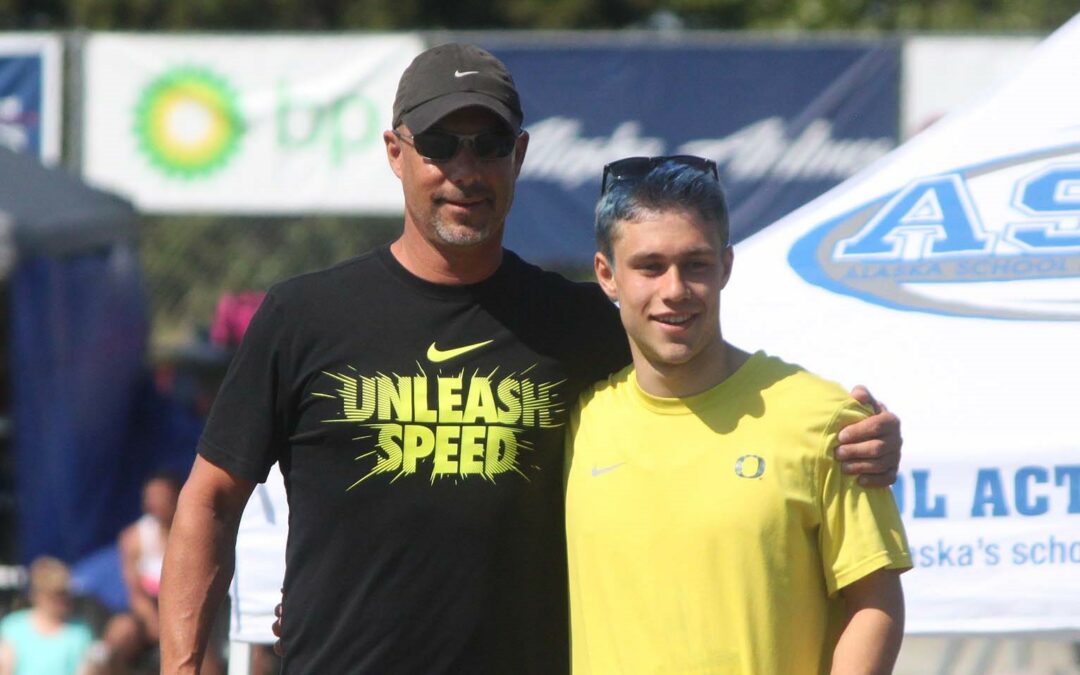
Camron & Doug Herron
Some may know him as the 800-meter state-record holder. Others know him as the man who in 1985 ran the fastest high school 800 in the country. Nowadays, many know him as “Coach.”
Doug Herron’s impact on the sport of track and field goes long beyond the records, as he continues to make history — first as an athlete and now as a coach.
His innate focus and precision in athletics is impeccable, and while Herron has coached athletes to success in a variety of events, the two-lap race has remained his bread and butter.
After an impromptu transition to the world of coaching, Herron has continued to find his stride, elevating athletes to the collegiate and national levels.
“At first, coaching didn’t really cross my mind,” said Herron. “I sat in my (college) coach’s office; I was in there every day during the spring of my senior year, my last season of eligibility.”
A conversation with his coach at Arizona eventually led Herron to show up to a high school track practice for what he believed would include speaking to the prep athletes about college running. But to his surprise, the head coach turned over the team to Herron insisting he lead them as their newly appointed coach.
While initially astonished, Herron got into a groove almost immediately.
“I loved it and I had a great time,” said Herron. “I had some athletes do really well the first year — one went on to the Air Force Academy.”
Among those he’s coached, he’s had five athletes run 1:51.84 or better in the 800, three earned All-American status at the Division II level, and he’s played a role in countless athletes’ success at the Division I level.
Arguably, Herron paved the way, first exploding onto the national stage as a Bartlett High senior, setting the long-standing state record of 1 minute, 49.2 seconds in the preliminary heats. The middle-distance talent took advice from former teammate Marcus Dunbar, who was on a semester break from the University of Oregon and suggested Herron pursue the record with fresh legs.
The plan worked, and since then, decades of athletes have been inspired by Herron, who lowered his personal best to 1:48.09 a week later at the high school national championships — the third fastest time in U.S. prep history at the time.
Herron went on to win the Pac-10 title in 1987 for Arizona, in addition to earning All-American honors in 1987 and 1988. His former program record of 1:47.00 in 1986 still stands as the fastest 800 all-time by an Alaskan.
Some of the athletes Herron has coached include Levi Thomet (Kodiak), Tristian Merchant (ACS), Santiago Prosser (Dimond), Jani Lane (Service), Mick Boyle (Kenai/UAA), Cory Pena (Kodiak/UAA), Maggie Callahan (West Valley) and his son Camron (West Valley).
Bartlett legend Doug Herron stands with Kodiak senior Levi Thomet after Thomet broke his 30-year-old 1600m record pic.twitter.com/csTN0tmLSj
— Joey Klecka (@Kleckinator) May 31, 2015
And while many of his athletes may have initially stood out, Herron further refined their skill sets and tailored training specifically to them.
“It’s really important to get to know your athlete,” said Herron. “They all have strengths and weaknesses — every one of them is different and responds differently to situations in training.”
For some athletes, he dialed back their mileage, while others focused on technical aspects of training.
“One plan does not work for everyone,” said Herron. “When you’re working with individuals, you have to be really tuned in, communicate, develop relationships, and create trust.”
Having a coach’s eye, along with a multitude of experience, Herron has often helped navigate athletes towards their prime events, while advising high school athletes to avoid specializing too early.
“(An athlete) might be a good distance runner that mechanically shows signs they could be a strong 400-meter runner,” said Herron. “It’s important as coaches to help find their place that’s going to help them in the future.”
Recently, Herron’s most impressive feat has included coaching an athlete virtually to the national level.
Enter Wisconsin’s Drew Regnier who owned a personal best of 1:53.91 in the 800 at the conclusion of his junior year. Regnier now boasts the No. 3 high school time in the country this season at 1:47.95, which ranks 15th all-time among U.S. prep athletes.
Last October, Regnier’s mom — Herron’s former Arizona teammate — reached out in hopes of finding substantial coaching for her up-and-coming athlete.
“We started with a lot of technical assessments upfront and then just started developing a plan for him to run his best 800 and 400 times he could run this year,” said Herron.
Regnier and Herron communicated via phone calls and text, and met once a week on Zoom, accompanied by his family. Herron sent the senior two-week training blocks while Regnier sent videos captured from his workouts. While some might be skeptical about the idea of virtual coaching, Herron eventually got on board, as well.
“These days with technology, I wasn’t sure about it either,” said Herron. “But he (Regnier) was so responsive with [workout] videos right away after he had just gotten out of a workout. You couldn’t do that back in the old days, things have changed a lot.”
What makes the feat even more impressive was that Regnier had no training partners or pacesetters and ultimately soloed his workouts, which can be challenging for a prep athlete. But the hard work paid off as Regnier lopped seconds from his 800, went sub 1:50 indoors, placed third at the Brooks PR Invitational, and took runner-up at New Balance Nationals Outdoor in a blistering time of 1:47.95, bumping Herron down a spot on the prep all-time list.
“Going from someone competitive in high school to being one of the top three guys in the country and top 15 all-time is huge,” said Herron. “His year has been quite a successful year and he’s checked all of the boxes.”
The next box Herron and Regnier will check includes the USATF U20 Championships, which are slated to take place this weekend in conjunction with the USATF Championships, featuring Ketchikan’s Isaac Updike.

Doug Herron back in the day
The key to Regnier’s and Herron-coached athlete’s success?
Simply put, less is more.
While Regnier trained predominantly for the 800 and 400, Herron says he logged between 20-25 miles per week during the season and focused on anaerobic fitness and speed development, in addition to speed mechanics, technical work, drills, hip mobility, and flexibility.
And while every athlete’s training is unique, learning how to manage weekly training regimens and workouts is key.
“We’re seeing a lot more 400/800 guys and Drew (Regnier) is that kind of guy,” said Herron. “I typically coach 800/1500 guys, so I had to modify my approach to coaching him because he was a 400/800 guy, not a miler. I had to be able to adapt training to his specific strengths.”
Speaking of adapting, after Herron bounced around from coaching, fish guiding, teaching, and cross country state meet directing, he eventually decided to start his own track and field academy, better known as the Alaska Running Academy.
Founded in 2010, Herron began with the idea of a place for athletes to meet outside of the season and get in extra training, coaching all of the track events by himself for the first few years. He later convinced Coach Rafael Echavarria — the BYU and former Mexican record holder in the 110-meter hurdles — to join forces. Chugiak’s head coach, Brian Kruchoski, completed the trifecta.
“We got a really solid group of coaches and right now it’s the best it’s ever been,” said Herron.
Now that Herron has over 20 years of experience coaching athletes, he is pleased with the like-minded individuals he’s assembled to develop athletes into some of the best in the state.
“Coach E and Brian (Kruchoski) joined us as a team and now we’re all on the same page in terms of these kids,” said Herron. “Finding them homes outside of high school and college — that’s our goal and it’s working really well.”
In reflecting upon his coaching journey, Herron has gained a bounty of tools to help athletes improve their times and become successful on the oval. While his storied career may be in the background, each experience along the way, including clocking a jaw-dropping 1:14 time trial over 600 meters, has shaped Herron into who he has become.
“That’s probably what I’ve gained most as a coach,” said Herron. “Learning how to control what we do on the track with my athletes, so they can race and perform on weekends.”

